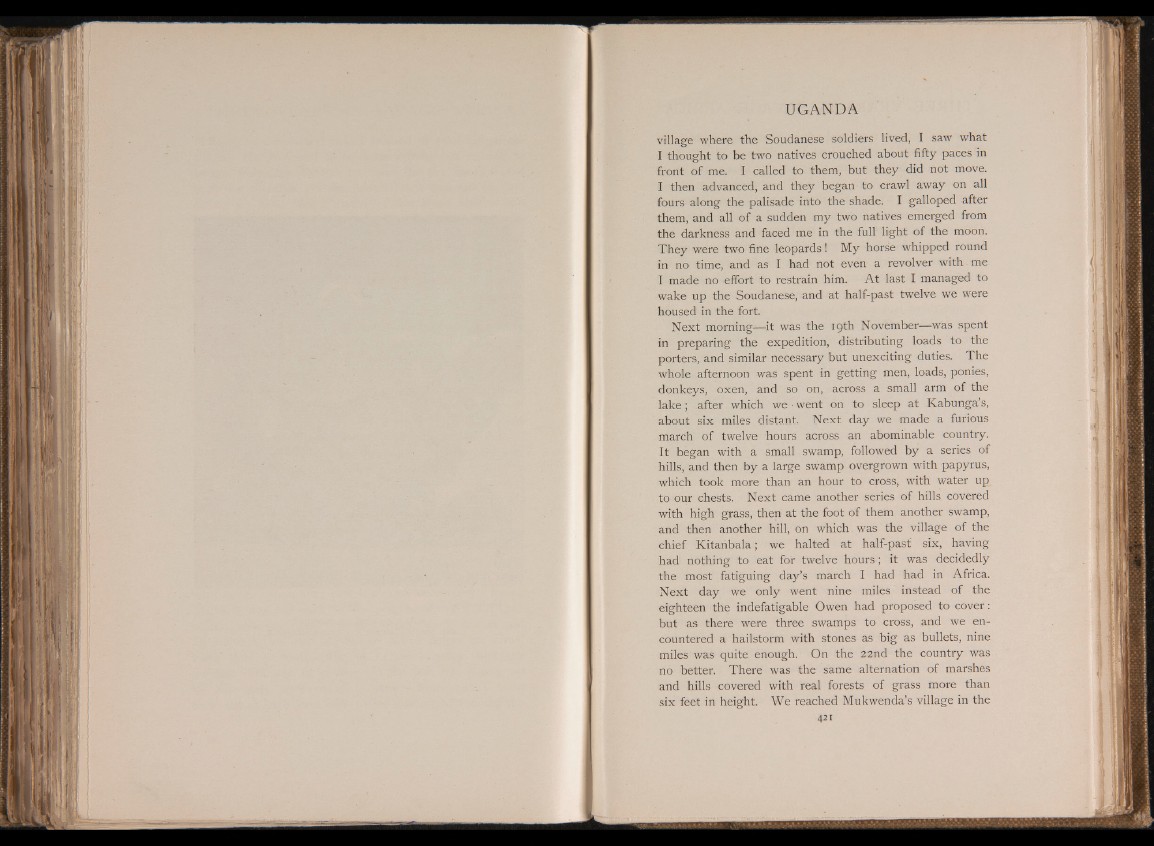
II If
U G A N D A
village where the Soudanese soldiers lived, I saw what
I thought to be two natives crouched about fifty paces in
front of me. I called to them, but they did not move.
I then advanced, and they began to crawl away on all
fours along the palisade into the shade. I galloped after
them, and all of a sudden my two natives emerged from
the darkness and faced me in the full light of the moon.
They were two fine leopards! My horse whipped round
in no time, and as I had not even a revolver with me
I made no effort to restrain him. At last I managed to
wake up the Soudanese, and at half-past twelve we were
housed in the fort.
Next morning—it was the 19th November—was spent
in preparing the expedition, distributing loads to the
porters, and similar necessary but unexciting duties. The
whole afternoon was spent in getting men, loads, ponies,
donkeys, oxen, and so on, across a small arm of the
lake; after which we went on to sleep at Kabunga’s,
about six miles distant. Next day we made a furious
march of twelve hours across an abominable country.
It began with a small swamp, followed by a series of
hills, and then by a large swamp overgrown with papyrus,
which took more than an hour to cross, with water up
to our chests. Next came another series of hills covered
with high grass, then at the foot of them another swamp,
and then another hill, on which was the village of the
chief Kitanbala; we halted at half-past six, having
had nothing to eat for twelve hours; it was decidedly
the most fatiguing day’s march I had had in Africa.
Next day we only went nine miles instead of the
eighteen the indefatigable Owen had proposed to cover:
but as there were three swamps to cross, and we encountered
a hailstorm with stones as big as bullets, nine
miles was quite enough. On the 22nd the country was
no better. There was the same alternation of marshes
and hills covered with real forests of grass more than
six feet in height. We reached Mukwenda’s village in the
421